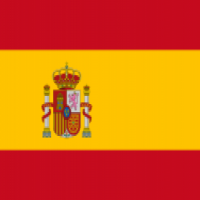Summary:
Spanish SME produces Tenebrio molitor insect frass which is the first insect derived fertiliser registered for organic agriculture. It shows outstanding chemical and microbiological properties which have proved beneficial for plants by increasing their abiotic resistance to harsh climate conditions and improving their health and immune system. The SME is interested in commercial, technical and especially in research cooperation under LIFE 2021 programme with academia or industry.
Description:
Spanish SME established in 2014 is devoted to breeding the Tenebrio molitor insect at industrial scale, transformation and commercialisation of derived co-products. The company´s expertise gained over the years enables the optimisation of methodologies for its production lines using equipment of proprietary design which is currently under patent application processes. Its activities show 90% reduction in energy and water use and CO2 emissions compared to traditional livestock farming. The SME is a current reference in the European insect industry and the first Spanish company authorised to breed insects at industrial scale. Its Tenebrio molitor frass was the first insect product registered as fertiliser for organic agriculture.
The European Commission established a 50% reduction in the use of pesticides and 20% reduction in the use of chemical fertilisers by 2030 as one of its main pillars of its Farm2Fork strategy. The use of organic fertilisers would contribute to address these challenge and lead to a more sustainable and greener agricultural sector. In this scenario, the SME produces insect frass (100% of biological origin) suitable for organic agricultural production according to Regulation (EC) 883/2007.
The Tenebrio molitor organic fertiliser, in addition to its nutrient value (N-P-K values = 5-4-3), it is a natural product against pest and bacteria (eg. it provides prevention against mould or pathogens). Previous research works and collaborations proved the following benefits by this frass:
- Bio-stimulant: its microbiota and chitin content promote nutrients uptake by the plants through a quick solubilisation of phosphorous and potassium in soil as well as fixation of atmospheric nitrogen.
- Growth promotion: the biological activity of this frass produces auxins such as indole acetic acid (IAA) which increases cellular division and growth rates up to 30% in some plants.
- Plant resistance to abiotic stress: this frass also produces the "ACC deaminase enzyme" which significantly improves the stress tolerance in plants under harsh environmental conditions (cold, salinity, water scarcity or excess, etc.).
- Inhibition of pathogens: this product proved its ability to inhibit pathogens from bacteria and fungi such as Sclerotinia sclerotiorum, Rhizoctonia solani, Fusarium, etc. This property is derived from its presence of chitin from the insect gut.
- Preserves agricultural soil: its high content in organic matter (>70%) with humic acids and an optimum carbon/nitrogen (C/N) ratio improves the quality and durability of agricultural soil.
The applications of insect frass are not limited and it can be used in different forms. Despite the application of organic fertilisers is not new, the microbiological activity of this disruptive product described above involves unrivalled advantages for certain agricultural uses such as ecological products for intensive crop farming. Actually, it showed an excellent performance when applied to fruits and vegetables such as carrots, peppers, tomatoes, chards and others.
The company is seeking collaboration with other SMEs, large companies and academia from the agri-food and agrochemicals sector under commercial agreement with technical assistance and technical cooperation agreement, being able to engage with large agricultural exploitations or agri-food producers to develop novel insect frass derived products. The partners would need to be committed to innovation and introduction of new products aligned with the EU´s policies described in the Green Deal and Farm2Fork strategies.
The SME is also interested in research cooperation agreement under LIFE 2021 programme. The company contributions would include systematic studies and analysis of different aspects of plant growth and resistance to pests or pathogens.
Type (e.g. company, R&D institution…), field of industry and Role of Partner Sought:
For commercial agreement and technical agreement the SME is open to different type of organisations and partnerships: public research centres, university, SME and large companies within the agri-food and agrochemicals sectors. It is expected that the potential partners help develop and demonstrate novel fertilising products and provide innovative solutions for farmers to develop a more climate change resilient agriculture, being committed to Green Deal and Farm2Fork EU’s policies. Ideally the partners would have high crop production capacity and expertise to evaluate the effect of insect frass as fertiliser in large crop extensions.
For research cooperation agreement the SME will appreciate a collaboration to study the effect of insect frass in plant growth and especially in their resistance to pests with accurate methodologies, experts and equipment under LIFE 2021 programme. The former should include the evolution of the plant all along its development with comprehensive analysis of its performance indicators.
Stage of Development:
Already on the market
IPR Status:
Trade Marks
External code:
TOES20211004001








